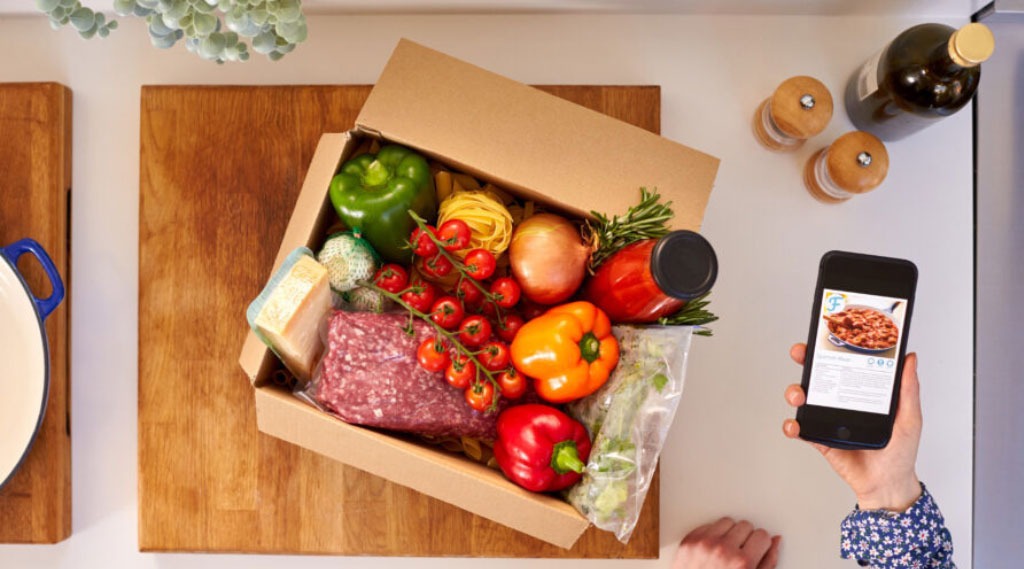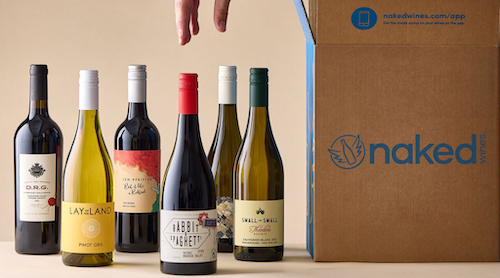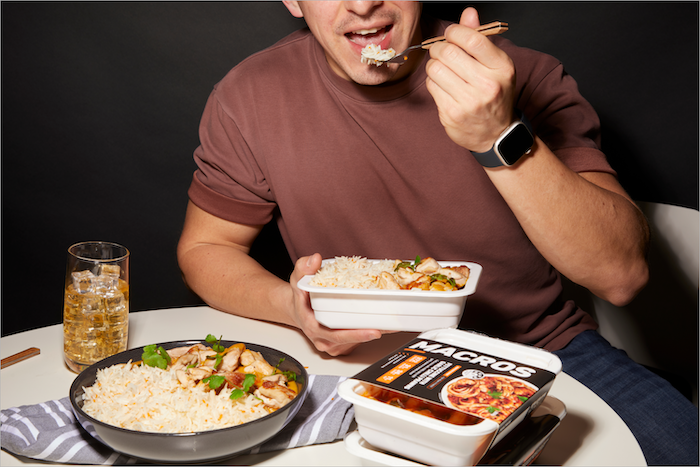In today’s fast-paced world, meal kits have emerged as a popular solution for busy individuals seeking convenience and variety in their diets. But how healthy are these meal kits, and do they truly align with our nutritional goals?
A research study in 2019 conducted by the University of Sydney in the journal Nutrients, sheds light on this topic, The study reveals valuable insights into the healthiness of meal kits in Australia to help us make informed choices when it comes to purchasing and consuming the food we eat.
Which meal kits were tested
The University of Sydney’s study, titled “Nutritional Qualities of Commercial Meal Kit Subscription Services in Australia” aimed to analyse and compare the nutritional composition of meal kits offered by some of Australia’s leading providers. They chose five popular commercial meal kit subscription services in Australia to compare:
- Dinnerly
- HelloFresh
- MarleySpoon
- Pepper Leaf
- Thomas Farm Kitchen
A random selection of 12 meals from each subscription service was analysed and compared. The researchers examined factors such as calorie content, sodium levels, and the presence of fruits, vegetables, and whole grains in each meal.
Key factors when choosing a meal kit
The study highlighted several key findings that can guide consumers in choosing a healthy meal delivery kit provider.
- Calorie & Fat Content:
On average, the analysed meal kits contained fewer calories than typical restaurant meals, making them a potentially healthier option for those conscious of their energy intake. All meals were high in fat with the study recording over 30g of fat on average per serve.
For three providers, the average energy content per meal was around 700 calories. The HelloFresh meals analysed had a higher fat content and therefore were higher in calories. This highlights the importance of understanding an individual’s energy requirements to help support their diet and lifestyle.
- Sodium Levels:
The study revealed that meal kits tended to have higher sodium content than recommended for a single meal. All meals that were analysed were high in salt – over 30% of the suggested dietary target for sodium.
This finding suggests the importance of monitoring sodium intake and being mindful of other high-sodium foods and sodium-heavy meals consumed throughout the day. You can compare low salt meal here.
- Vegetables, and Whole Grains:
The research indicated that meal kits generally contained a good amount of vegetables, enhancing their nutritional profile. Servings of vegetables ranged from 2.3 serves to 3.1 serves between meal providers. This is great as it contributes to the Australian Government’s recommended dietary intake of 5 servings of vegetables per day.
The inclusion of whole grains was limited, calling for attention to be paid to the overall balance of the meal. The Dinnerly meal kit had a much higher proportion of wholegrain serves compared to the other meal kit providers.
- Customisation and Portion Control:
One advantage of meal kits highlighted in the study was the ability to customise ingredients and portion sizes, allowing individuals to cater to their specific dietary needs and preferences.
In our opinion, customisation is truly one of the stand out features when choosing a quality, healthy meal kit delivery provider in Australia.

How to choose a healthy meal kit
Based on the study’s findings, consumers can take certain steps to ensure they make healthier choices when selecting meal kits:
- Read Nutritional Information: Pay close attention to the nutritional information provided by meal kit providers, including calorie counts, sodium levels, and the presence of key nutrients to suit your individual needs.
- Modify and Enhance: Use the customisation options offered by meal kit providers to adjust the meal kit to your own dietary preferences.
- Consider Sodium Intake: Be mindful of sodium levels in meal kits and plan the remaining meals of the day accordingly to maintain a healthy overall sodium intake. Avoid adding extra salt to your meals.
- Supplement with Fresh Ingredients: Pair your meal kit with fresh produce to further boost the nutritional content and add variety to your plate. For example you can add a serving of vegetables (e.g. steamed greens) and extra sources of protein (e.g. hemp seeds).
The University of Sydney’s research offers valuable insights into the healthiness of meal kits, empowering consumers to make informed decisions about their dietary choices. While meal kits provide convenience and often include an adequate amount of vegetables, it’s important to be mindful of factors such as calorie content, sodium levels, and the overall balance of the meal. By staying informed and making conscious choices, we can optimise the healthiness of our meal kit experiences and support our overall well-being.
The pros and cons of meal kit ingredients
Pros of Meal Kit Ingredients:
- Convenience: Meal kit ingredients are pre-portioned and pre-packaged, saving you time and effort in meal planning and grocery shopping.
- Variety: Meal kits offer a wide range of recipes and cuisines, allowing you to explore new flavours and try different dishes without the need for extensive recipe research.
- Portion Control: With pre-portioned ingredients, meal kits help promote portion control, ensuring you consume appropriate serving sizes and potentially aiding in weight management.
- Reduced Food Waste: Since meal kit ingredients are pre-measured, you only receive what you need for each recipe, minimising food waste and reducing your ecological footprint.
- Recipe Inspiration: Meal kit ingredients come with detailed recipes and cooking instructions, providing inspiration and guidance for those who may be less experienced or adventurous in the kitchen.
Cons of Meal Kit Ingredients:
- Cost: Meal kits can be more expensive compared to buying ingredients from grocery stores. The convenience and pre-portioned nature of meal kits come with a higher price tag.
- Packaging Waste: While meal kits reduce food waste, they often result in increased packaging waste due to individual packaging of ingredients. This can contribute to environmental concerns.
- Lack of Flexibility: Some meal kits offer limited flexibility in ingredient choices and customization. You may not have control over specific ingredients or the ability to cater to specific dietary preferences or restrictions.
- Cooking Skill Development: Relying solely on meal kits may hinder the development of cooking skills, as the recipes and ingredients are already provided, leaving less room for experimentation and creativity in the kitchen.
- Delivery and Availability: Depending on your location, meal kit delivery may be limited or not available at all, restricting access to this convenient meal solution.
Using our meal finder you can compare meal delivery and vitamin subscriptions today to find the right meal kit for you and your dietary needs!
Disclaimer: This blog post is a summary of the original article from the University of Sydney and does not constitute medical or nutritional advice. Please consult a healthcare professional for personalised guidance regarding your dietary needs.
FAQs
Meal kits can be a healthy option as they often provide balanced meals with portioned ingredients, but it’s important to choose ones that align with your nutritional goals.
Meal kits can offer comparable nutrition to homemade meals, especially when they include a variety of fruits, vegetables, lean proteins, and whole grains.
Yes, meal kits typically prioritise the use of fresh ingredients. Many meal kit services source their ingredients from reputable suppliers and ensure that they are fresh and of high quality. However, it’s important to check customer reviews and choose a trusted meal kit service to ensure the freshness of ingredients
Many meal kit services offer options for various dietary needs such as vegetarian, vegan, gluten-free, or keto, allowing you to find options that suit your requirements.
Meal kits often provide portioned ingredients that align with recommended serving sizes, making it easier to maintain portion control and support a healthy diet.
When choosing a meal kit, look for those that prioritize fresh ingredients, offer nutrient-dense recipes, provide nutritional information, and offer customisation options.
Meal kits can support weight management or weight loss goals by providing portion-controlled meals with balanced nutrition, but overall calorie intake and activity levels should still be considered. MarleySpoon is one of the best all-around meal kits for individuals on a diet.






